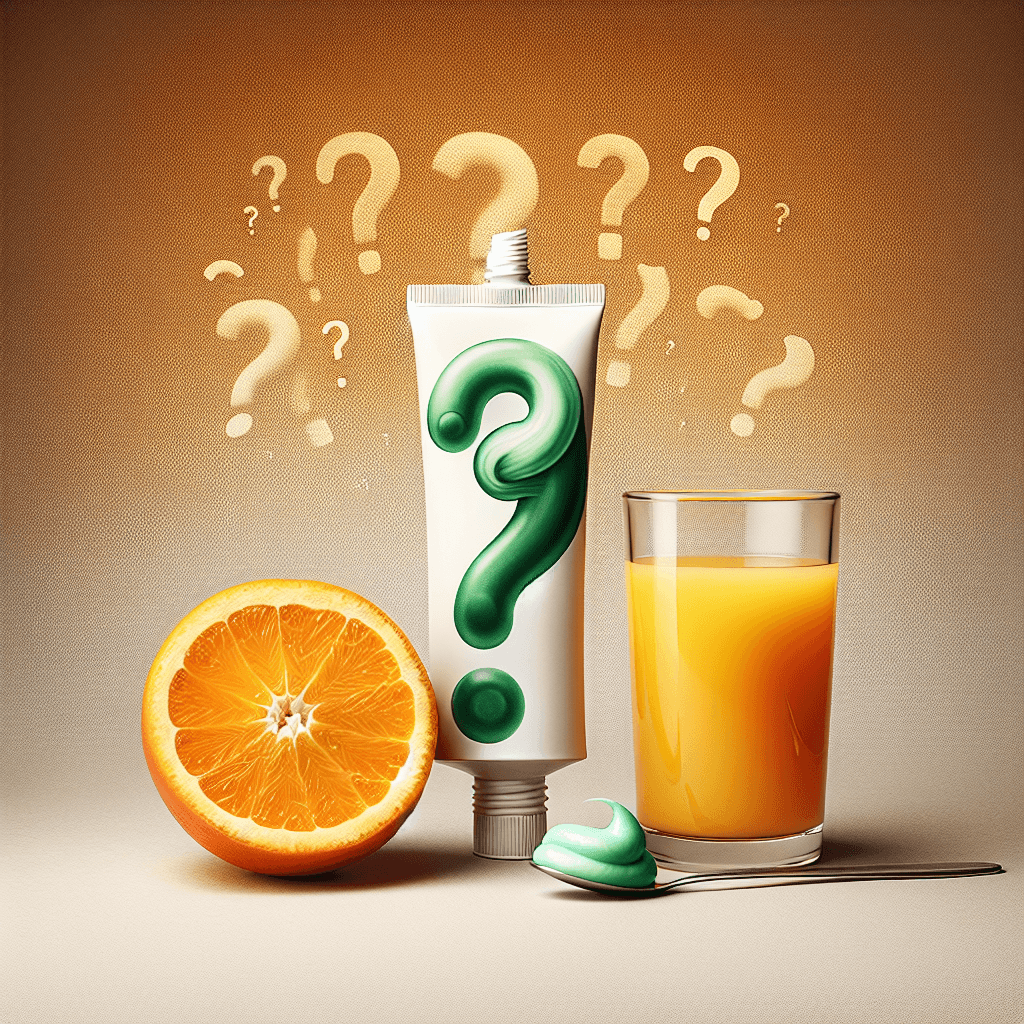Why does toothpaste make orange juice taste so famously terrible
It’s not the orange juice’s fault—discover the single ingredient in your toothpaste that hijacks your taste buds, turning your sweet morning drink into a bitter betrayal.


Too Long; Didn't Read
TLDR: A foaming agent in most toothpastes, sodium lauryl sulfate (SLS), temporarily blocks your sweet taste receptors and enhances bitter ones. This makes the normally sweet orange juice taste intensely bitter and sour because you can only taste its citric acid.
The Chemical Culprit: Why Does Toothpaste Make Orange Juice Taste So Famously Terrible?
It’s a universally recognized mistake, a cringe-worthy moment in many morning routines. You diligently brush your teeth, leaving your mouth feeling minty-fresh and clean. Then, you take a big swig of cold, sweet orange juice, only to be met with a shockingly bitter, metallic, and altogether foul taste. This isn't just a strange quirk; it's a fascinating chemical reaction happening right on your tongue. For decades, people have wondered about this breakfast betrayal. This post will unravel the science behind this taste phenomenon, identifying the specific ingredient in your toothpaste responsible for turning your favorite juice into a bitter potion.
Meet the Culprit: Sodium Lauryl Sulfate (SLS)
The primary reason for this taste-bud chaos is a single, common ingredient found in most toothpastes: Sodium Lauryl Sulfate, often abbreviated as SLS.
So, what is SLS? It’s a type of chemical known as a surfactant. Its main job in your toothpaste is to act as a detergent and foaming agent. When you brush, SLS helps create that satisfying lather that spreads the paste evenly throughout your mouth, lifting away food debris and plaque. It’s incredibly effective at this, which is why it’s also a key ingredient in many other products that need to foam, like shampoos, soaps, and laundry detergents. However, while it’s great for cleaning, its side effects are what ruin your orange juice.
A Double Whammy: How SLS Alters Your Perception of Taste
Sodium Lauryl Sulfate wages a two-pronged attack on your taste buds, completely changing how your brain interprets the flavors in orange juice. It’s not that the juice itself has changed; it’s that your ability to taste it properly has been temporarily disabled.
1. It Blocks Your Sweet Receptors
Your tongue is covered in thousands of taste buds, which contain protein receptors designed to detect five basic tastes: sweet, sour, salty, bitter, and umami. SLS specifically interferes with the phospholipids on the surface of the cells responsible for detecting sweetness.
Think of SLS as a temporary bouncer for your sweet receptors. It stands in the way, preventing the sugar molecules in the orange juice from binding with the receptors and sending their "sweet" signal to your brain. As a result, the natural sweetness of the orange juice is almost completely muted. You simply can't taste it.
2. It Unleashes the Bitterness
As if turning off the sweetness wasn't bad enough, SLS performs a second, more sinister trick. It also breaks down the phospholipids that normally inhibit our bitter taste receptors. These compounds act as a natural buffer, toning down bitter flavors in the foods and drinks we consume.
By dissolving this protective layer, SLS leaves your bitter receptors exposed and hypersensitive. Orange juice naturally contains citric acid and other compounds that have a slightly bitter taste, which is normally balanced and masked by its high sugar content. With the sweetness gone and your bitter receptors on high alert, these underlying bitter notes are amplified to an overwhelming degree. This combination of suppressed sweetness and enhanced bitterness is what creates that famously terrible taste.
Can You Hack Your Morning Routine?
Fortunately, this dreadful experience is entirely avoidable. If you want to enjoy your orange juice without the bitter surprise, you have a few simple options:
- Switch Your Toothpaste: Look for toothpastes that are labeled "SLS-free." Many brands, such as Sensodyne, Tom's of Maine, and Arm & Hammer, offer formulas that use alternative, gentler surfactants that don't interfere with your taste buds.
- Change the Order: The easiest fix is to simply drink your orange juice before you brush your teeth. This way, your taste buds are in their natural state to enjoy the juice.
- Wait It Out: The effect of SLS is temporary. If you brush your teeth first, just wait about 30 minutes before drinking your juice. This gives your saliva enough time to wash away the residual SLS and for your taste receptors to recover.
The Verdict on a Bitter Breakfast
The unpleasant clash between toothpaste and orange juice is no mystery, but rather a clear-cut case of chemistry. The foaming agent Sodium Lauryl Sulfate (SLS) is the definitive culprit, working to both block your ability to taste sweetness and magnify the perception of bitterness. This simple interaction transforms a sweet, refreshing drink into a jarringly foul experience. So the next time you're planning your morning, remember the science at play. A small change to your routine can ensure your breakfast remains a pleasant start to the day, free from any bitter betrayals.


